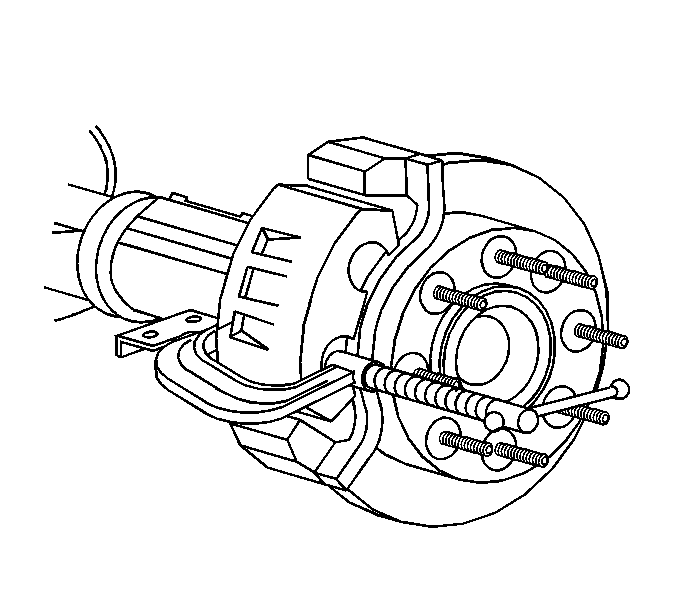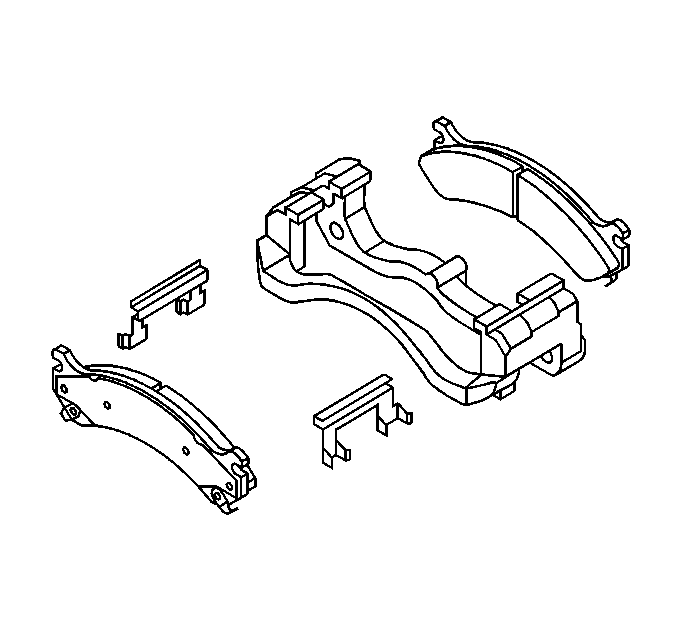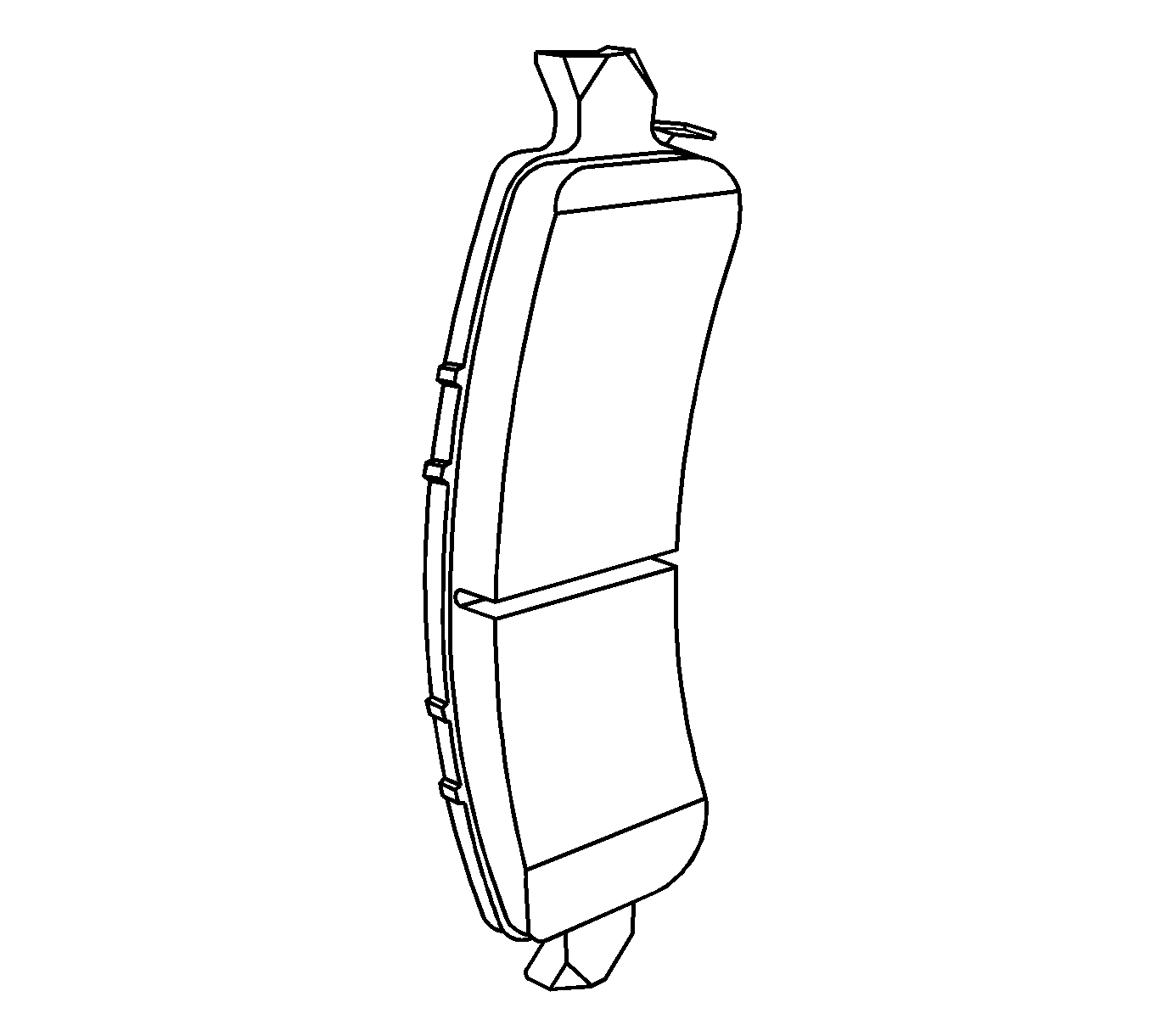For 1990-2009 cars only
Removal Procedure
Caution: Refer to Brake Dust Caution in the Preface section.
Notice: Refer to Brake Fluid Effects on Paint and Electrical Components Notice in the Preface section.
- Inspect the fluid level in the brake master cylinder reservoir.
- If the brake fluid level is midway between the maximum-full point and the minimum allowable level, no brake fluid needs to be removed from the reservoir before proceeding.
- If the brake fluid level is higher than midway between the maximum-full point and the minimum allowable level, remove brake fluid to the midway point before proceeding.
- Raise and suitably support the vehicle. Refer to Lifting and Jacking the Vehicle in General Information.
- Remove the tire and wheel assembly. Refer to Tire and Wheel Removal and Installation in Tires and Wheels.
- Inspect the caliper operation. Refer to Brake Caliper Inspection .
- Place a C-clamp as shown. Slowly bottom the pistons of the caliper. It may be necessary to reposition the C-clamp to allow both of the pistons to bottom into the caliper bores.
- Remove the caliper from the mounting bracket and support the caliper with heavy mechanic's wire or equivalent. DO NOT disconnect the hydraulic brake flexible hose from the caliper. Refer to Rear Brake Caliper Replacement .
- Inspect the caliper assembly. Refer to Brake Caliper Inspection .
- Remove the brake pads from the brake caliper bracket.
- Remove and discard the anti-rattle clips from the brake caliper mounting bracket.

Notice: Support the brake caliper with heavy mechanic wire, or equivalent, whenever it is separated from its mount and the hydraulic flexible brake hose is still connected. Failure to support the caliper in this manner will cause the flexible brake hose to bear the weight of the caliper, which may cause damage to the brake hose and in turn may cause a brake fluid leak.

Installation Procedure
- Install the anti-rattle clips to the brake caliper bracket.
- If working on a 2WD 1500 series utility, install the inboard rear pad to the brake caliper bracket with the longer pad end chamfer facing down. For all other utilities, install the brake pads to the brake caliper.
- Install the brake pads to the brake caliper bracket.
- Install the brake caliper to the mounting bracket using NEW bolts. Refer to Rear Brake Caliper Replacement .
- Install the tire and wheel assembly. Refer to Tire and Wheel Removal and Installation in Tires and Wheels.
- Lower the vehicle.
- With the engine OFF, gradually apply the brake pedal to approximately 2/3 of its travel distance.
- Slowly release the brake pedal.
- Wait 15 seconds, then repeat steps 7- 8 until a firm pedal is obtained. This will properly seat the brake caliper pistons and brake pads.
- Fill the master cylinder reservoir to the proper level with clean brake fluid. Refer to Master Cylinder Reservoir Filling in Hydraulic Brakes.
- Burnish the brakes pads and rotors as necessary. Refer to Brake Pad and Rotor Burnishing .


Important: Proper orientation of the brake pads is critical for proper pad wear.
